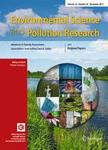版权所有:内蒙古大学图书馆 技术提供:维普资讯• 智图
内蒙古自治区呼和浩特市赛罕区大学西街235号 邮编: 010021

作者机构:Department of Electronics and Communications Lloyd Institute of Engineering and Technology UP Greater Noida201306 India ECE Department GL Bajaj Institute of Technology and Management UP Greater Noida201306 India
出 版 物:《Environmental Science and Pollution Research》 (Environ. Sci. Pollut. Res.)
年 卷 期:2024年第31卷第22期
页 面:33148-33154页
核心收录:
学科分类:0303[法学-社会学] 0710[理学-生物学] 0830[工学-环境科学与工程(可授工学、理学、农学学位)] 1201[管理学-管理科学与工程(可授管理学、工学学位)] 0828[工学-农业工程] 08[工学] 0901[农学-作物学] 0835[工学-软件工程] 0812[工学-计算机科学与技术(可授工学、理学学位)]
主 题:Farms
摘 要:By 2050, the world’s population is predicted to reach over 9 billion, which requires 70% increased production in agriculture and food industries to meet demand. This presents a significant challenge for the agri-food sector in all aspects. Agro-industrial wastes are rich in bioactive substances and other medicinal properties. They can be used as a different source for manufacturing products like biogas, biofuels, mushrooms, and tempeh, the primary ingredients in various studies and businesses. Increased importance is placed on resource recovery, recycling, and reusing (RRR) any waste using advanced technology like IoT and artificial intelligence. AI algorithms offer alternate, creative methods for managing agro-industrial waste management (AIWM). There are contradictions and a need to understand how AI technologies work regarding their application to AIWM. This research studies the application of AI-based technology for the various areas of AIWM. The current work aims to discover AI-based models for forecasting the generation and recycling of AIWM waste. Research shows that agro-industrial waste generation has increased worldwide. Infrastructure needs to be upgraded and improved by adapting AI technology to maintain a balance between socioeconomic structures. The study focused on AI’s social and economic impacts and the benefits, challenges, and future work in AIWM. The present research will increase recycling and reproduction with a balance of cost, efficiency, and human resources consumption in agro-industrial waste management. © The Author(s), under exclusive licence to Springer-Verlag GmbH Germany, part of Springer Nature 2024.